- Home
- Tanya Anne Crosby
Maiden from the Mist (Guardians of the Stone Book 4) Page 2
Maiden from the Mist (Guardians of the Stone Book 4) Read online
Page 2
Chapter One
Dunrònaigh Keep, April 1136
Somewhere, up in the tower, a heavy door slammed. Seconds later, rushes swirled beneath the table, tickling Alec’s legs. More doors opened and closed. Opened and closed. Opened and closed. Slam. Slam. Slam. Slam.
Alec cursed beneath his breath.
In living memory, as poor as they might be, Alec couldn’t recall a single winter that had ever been quite so harsh. Of course, Rònaigh was but a wee stick in Scotia’s Firth, less than a thousand acres on a fair day. A goodly portion of their land was rocky coastline; so they tilled as much soil as they possibly could and survived by the good graces of the sea—fish, seabirds, anything the Blue Men thought to pitch upon their shores. Alas, even during a year of plenty, it took hardy folk to make it through, and it was difficult enough to get by when all their kinsmen were willing and able to work and the laird was fit to rule. But now, after that battle on the hill, they’d lost full half their numbers and Rònaigh’s welfare was tied inexorably to that infuriating man upstairs. Caden Mac Swein was like an angry, willful child, cursing the fates. Only Alec knew full well what he was trying to do; he would like to sway the clansmen to depose him, only this would never happen. Caden Mac Swein had been their champion for as long as anyone had memory, and as ucht Dé, for God’s sake, if only one of the two—Caden or Davie—was meant to live, Alec counted his lucky stars it must be Caden.
Wee Davie had been a tiresome lad. Oversmall for his age, and willful as the storm kelpies, the boy was born frail—precisely the sort of bairn a Viking lord might have put out into the snow—and this added to the fact that Wee Davie’s parentage was still in question. Auld MacLeod began this feud by stealing Caden’s mother in a fit of pique, and although Mary Mac Swein had escaped her dubious captor after barely three months, she came home with a belly as big as a whale. If anyone were to ask Alec, he would say he questioned the validity of her claim. In fact, he had a sneaking suspicion Mary Mac Swein had had her fill of Auld MacLeod and then returned of her own accord. No one ever told that woman what to do, and Alec was plenty old enough to remember every single dance she gave Auld MacLeod. Mary had been given to flirtation—just the same as Caden’s brothers. Only Caden had inherited his father’s grace. So, then, no one on Rònaigh would ever disagree: Caden was the best and brightest of all five Mac Swein boys, although you’d never guess as much by his current behavior.
Slam. Slam. Slam. Slam.
Alec grit his teeth, attempting to focus on the ledgers.
One. Two. Three. Four. Five. Six. Seven.
Cyphering did not come so easily to him as it did to Caden. But, that’s how many sacks of barley now remained. They were at least a month away from May Day’s Eve, the customary time to bless their fields, and to do aught before this day was a curse to the year’s yield. The quandary he now faced was to properly dispense the remaining portions, so that no one went without—a task previously exacted by the laird. Alec had no clue how to proceed—particularly since he had a personal interest in the matter.
With less than a month to go, he probably should give all the barley, save one sack, to the alesman, because, nobody liked the Bessie’s bread. In truth, not even Alec enjoyed it. He merely forced himself to eat it, because he fancied the lass who’d baked it. Though, of course, Bessie didn’t realize how Alec felt. He was allowing her a proper time to grieve, as her dearly departed husband was one of those good men lost upon the hill. And, more’s the pity, he was also the cobbler, so, now, half the clan was running about shoeless. Thankfully, it was getting warmer now, and the fishermen could return to fishing without their toes turning blue as the Minch.
Slam. Slam. Slam. Slam.
At his wit’s end, Alec lifted a hand to call for the steward, but at that moment, the steward ambled in. Bowing with deference, Afric approached the laird’s table—not because Alec was laird of this demesne. He bowed because the steward, like all of Alec’s remaining kinsmen, understood that, without Alec, someone else would be forced to deal with the “Beast of Dunrònaigh.” Blinded although he might be, Caden Mac Swein was no less fearsome in his wretched state.
Slam. Slam. Slam.
“What in God’s name is he doing up there?”
The steward lifted a shoulder. “Forsooth, it seems the more we ignore him, the louder ’e gets.”
Rot and curse the sulking sop. For five long months, Caden Mac Swein had been mourning the loss of his brother. But that was long gone and done. There was naught they could do. Would he have them simply hand the isle over to MacLeod? Because, essentially, that’s what they would be forced to do if anyone but Caden sat upon the laird’s chair, blind or nay. Only Caden had a right to rule this land, and no one else had a lineage so grand—not even Skye’s MacLeods. This, by the by, was the precise reason Alec believed there was any feud at all. If the old laird hadn’t run about, all cock and brag, touting Rònaigh’s histories to Auld MacLeod, then perhaps Auld MacLeod would never have felt compelled to steal Caden’s mother. By the rood, there was little worse in this life than a braggart, but then again, braggarts rarely recognized that’s what they were.
“’E’ll come about,” Alec promised, but it was the same thing he’d been saying since late November, when Caden Mac Swein mysteriously lost his sight. Alec, too, was beginning to harbor a wee doubt.
“From your gob to God’s ears,” the steward intoned, and then added, “There’s a woman outside what claims she needs’ tae speak wi’ ye.”
“Me?”
“Aye, Cap’n.”
“Not the laird?”
The steward shook his head.
“A woman? Here? Didn’t anyone see a ship approach?”
“Nay sir.”
“Ach, now, how the devil did she get here?”
Afric whispered with a hand to his mouth. “I dunno, but if’n ye ask me, I’d say she came by broom, not by boat. She’s got hersel’ a patch over one eye, and the other’s half blind as well.”
Alec scratched his beard. He laid down his quill. Not since five May Days past had they had the opportunity to entertain strange women upon their isle. Used to be, it was the one time of the year Auld MacLeod shipped his kinfolk to Rònaigh to celebrate the holy day with his good friend, the auld Mac Swein. But, after Mary died, Auld MacLeod started a war, and now, there was hardly an opportunity that went by that Auld MacLeod did not attempt to take what was theirs. Alec had not worked so hard to keep the laird’s state from being known, only to betray it now to a wandering old crone. Weighing all the things he might learn against the things she might glean, Alec decreed, “Send her away.” And he pulled his ledger closer, tapping a finger on a puzzling figure. “What is this notation, Afric? Betimes, I cannot read your dreadful scribbles. Is it a seven? What is that small line you have drawn?”
The steward seemed not to hear Alec’s question, or even register his complaint. There was a peculiar look in his eyes, one Alec knew not to ignore. “What is it?” he asked.
“Well, sir … I know what ye said … about permitting strangers, but that auld bat claims to have information to serve our laird.”
Alec blinked. “How curious. A blind woman seeking to aid a blind man?”
Slam. Slam. Slam
“Verra well… I suppose we must give the woman a chance.” They were desperate for a means to an end to their plight. “Show her into the hall.”
The steward went away and Alec rose from the table to make his way to the laird’s seat to greet their curious guest. After a moment, a small, withered woman came hobbling into the hall, holding a pale wood staff in her hand. Her face was painted fully in blue, with one good eye smeared with black to match a dark patch she wore over her left eye. She looked like a demon with her curly white hair. And, every tap of her staff upon the stone floor reverberated a bit like thunder. Nevertheless, she looked frail, and it crossed Alec’s mind that someone so enfeebled could never truly aid his laird. His disappointment manifested itself as a sigh as he
peered up at the glorious tapestries adorning their walls. Once, long ago, they had been the envy of Éire. The Righ Art himself had awarded his daughter to a Viking jarl. Half expecting the alliance to wither with the cold North Winds, he’d found himself, instead, with an ally to the North—a Viking king as fierce as the Blue Men and the Minch.
Alas, this woman was a disappointment, but at least he would be given the opportunity to regale her with the tale of his clan. “Welcome!” he said, with a flourish of his hand. “Welcome to the hall of Rònaigh’s kings.”
The woman didn’t appear much impressed.
Alec spoke a little louder, quite certain she must be deaf as well as blind. “Here, now, good woman, you stand before the high seat where once ruled Swein of the North.” Alec straightened his back, proud to speak the rest. “Wed to the favored daughter of the High king of Éire, Conn Cétchathach himself!”
Still not impressed, the old woman said, “Yes, yes, yes … I knew them well.” And she sniffed and brushed a bony finger beneath her beak-like nose. “What a curmudgeon Swein was.”
Alec furrowed his brow.
Of course, it was not even remotely possible she knew either of these men. Both had died more than a thousand years behind them. Clearly, the old woman was senile, so Alec decided to humor her. “Aye,” he said jokingly, “Must be a family trait.” Certainly, Caden had become a bit of a curmudgeon himself.
“Must be,” the old bat agreed, and she had a bright twinkle in her one good eye. “My name is Biera,” she announced.
With unflagging good humor, Alec said, “Welcome, Biera, dearest friend of Swein. What can we do for you today?”
Without warning, Biera’s staff stretched the impossible distance between them, bopping Alec once upon the head. “I did not tell you he was my friend. A friend is someone more precious. I have nay love for either of those men. And you, dear boy, would do well to remember not to bring that word so swiftly to your tongue. You see what friendship has wrought between allies. You see what mercy there is to be found in fair-weather friends!”
Well and duly chastised—like a wee child by his grandmother—Alec’s hand went to his noggin, rubbing it fiercely. Far too puzzled by the stretching of Biera’s staff to take an angry stance, his surprise was nevertheless evident on his face. There was something about the woman that was entirely too familiar, and yet… he didn’t believe he’d ever seen her grizzly face in all his life.
“I am auld,” she continued, “and nearly as crotchety as your blind, intemperate master. But not even Swein would have dared to mock me. And, by the by, I have no use for brooms, but I do have a use for you.”
Perplexed, Alec continued to rub his head. Already, he had a knot the size of a belt buckle on the pate of his head. But then, how did she know what Afric had said? And more than that, how could someone so enfeebled wield a stick like that? Inconceivably, she was standing too far away. And he couldn’t even be certain he ever saw her move. Quite to the contrary, it seemed to Alec that she had stood precisely right there, all along, glaring at him, through all that paint, with her one good eye.
How strange.
The woman smiled thinly. “So, now that I have your attention,” she said, stabbing the bejeweled tip of her staff in Alec’s direction. It winked maliciously, making Alec wince. He sank back into his chair.
“Two nights hence will rise a destiny star o’er the Minch. And following that star will come a lass by the name of Sorcha. She seeks passage to the Isle of Skye. You will accept her charter, but rather than take her to her destination, you will bring her to Rònaigh an Taibh.”
Steal a woman? Alec’s ears perked. “Per force?”
“If need be.”
“How will we know her?”
The woman smiled fondly. “She is unmistakable, with lang, saft hair, and eyes so bonny and blue. The prettiest lass you’ll e’er see, but she is not for you.”
Disappointment filtered through Alec—until the woman continued. “Her daughters will seal alliances for the ages, and her gifts will return to your laird that which he has lost.”
Was the woman claiming she could raise the dead? Unless she could bring back Wee Davie, there was naught anyone could do for Caden. But as for his sight…. Alec narrowed his eyes with the intention of testing her. “Do tell, my lady, what could that be?”
Right before Alec’s eyes, the woman’s form seemed to grow. She straightened, rising to a startling height, and it was as though her hunched little back hid the full length of her spine.
“His sight,” she hissed, and the words slid like an asp through her teeth. “You must not allow Sorcha to leave Rònaigh, for if she does, she will seek me.”
For the tiniest moment, Alec rediscovered his mettle. “Why?” he persisted. “Have you committed some crime against the puir lass?”
The old woman pointed a crooked finger in Alec’s direction. “Amadán!” Fool. “What she is to me is no concern of yours. It is what she is to your laird ye must ken.”
For the space of a moment, that look on her face was terrifying, sending shivers of fright down Alec’s spine. In that instant he glimpsed the truth of the Universe in the depth of her one good eye. She was no mere mortal, this woman. She was something other.
“Do we understand each other?”
Alec nodded. “Aye,” he said, and he righted himself at once. He clapped his hands, calling for the steward. “Bring ale,” he demanded. “Bring uisge!” To their divine guest he said, “We have much to discuss.”
“Oh, aye,” the old woman agreed, and she bent over her staff and turned to hobble toward the table where the ledgers sat forgotten. “What a sweet, young man,” she allowed. “What a dear, sweet young man. Come now, let me tell you what must be done. The last time a destiny star ventured quite so near, three wise men traveled from afar to gift a wee bairn gold, frankincense and myrrh.”
Chapter Two
Meanwhile, in the Caledonian woodlands …
Peering up, through a canopy of green, Sorcha dún Scoti glared at the strange star that had appeared so conveniently yester morn—mind you, during a moment when she’d briefly considered turning back home. Now, the further she rode west, the closer it seemed to come. It was as though Una herself were taunting from up high, “Come find me,” she said. “Find me, if you can.”
“Dinna worry, I will,” Sorcha said through gritted teeth, and all the silvery birches, with their pale new leaves, shivered in the breeze.
She glared at the star, and then softened. Because, of course, her mother was named after the stars. Perhaps this was not Una? Perhaps this was Riannag dún Scoti? Guiding her where she was meant to go. Alas, though, whoever it be, or wherever it meant to lead her, one thing was certain: There was nothing remaining for Sorcha in the Vale.
Presently, the scent of salt crept into the air—an odor that was familiar to her now after having spent so much time in Ailginshire. By now, her brother Keane would have received word of her departure. Would he join the search?
Sorcha didn’t care. She didn’t need people in her life who had no compunction over lying to her—not even Una.
Una, who had all the answers.
Una, who had raised them up since birth.
Una, who was out there… somewhere.
Sorcha could feel it down in her bones. Why? Why? Why? she’d asked herself so many moons ago, when the mountain in their Vale collapsed, destroying the sacred relic of her people, along with Una’s grotto. The stone from Scone had been the sole reason for the Guardians’ existence in the Vale—a natural prison by the way Sorcha now viewed it. Only now it was gone—lost beneath a mountain of rubble, along with the Mother of her people. So, then, why had they bothered to sequester themselves to protect a worthless stone the gods would soon see fit to reclaim? What future have the Guardians now?
But, rather, this was the one thing that troubled Sorcha most; why would Una remove her grimoire and her keek stane from that grotto?
Because she knew.
/>
And if she knew, why then would she leave these precious things with Sorcha, then return to the grotto to await her death?
Because it didn’t happen that way.
Sorcha was certain of it now. It was hardly any wonder she couldn’t grieve. Because Una was alive, and if she were not, Sorcha would feel it down in her bones. She believed this as surely as she breathed; that wily old woman did not share a tomb with the Stone from Scone. She was out there … somewhere.
“I will find you,” she said, shaking a fist at the star.
But they would not find Sorcha, she vowed. Traveling alone, she knew better than to use the king’s roads. David’s men were apt to patrol them, and if there be brigands, that’s where they would lie in wait. And yet it was no hardship to avoid them; Sorcha knew the woodlands better than most. She was a daughter of the wind, after all. A child of the forest. She and her kinsmen were the last of the painted ones, blah, blah, blah—save for the fact that Sorcha could no longer hear the heartbeats of her ancestors thrumming through her veins. She was no longer a dún Scoti, but a Caimbeul, ill-conceived by a man she was raised to loath. And this duplicity had been fostered by the entirety of her clan—people she had grown to love and trust. Sorcha no longer wanted any part of them.
She spat upon the ground, forsaking the Guardians, casting away her histories like the wind. She would begin a new tale now…
Certainly, by now, her laird brother would have sent riders to Keppenach and to Dunràth.
No matter; they would return empty handed, none the wiser. Sorcha had learned quite a lot from her siblings. From Keane, she’d learned how to hunt and track. From Lael, she’d learned how to wield a blade. From Cailin, she’d learned how to shoot a bow. From Catrìona, she’d learned to use her charms. And Lìli—yes, Lìli was her sister—she’d learned to perfect her simples. Last, but not least, from her laird brother, she’d learned how to lie. Rage, black as the hair on her nephew’s head, beat its wings against her ribs. For, in truth, everyone lied to her.

 Lord of Shadows (Daughters of Avalon Book 5)
Lord of Shadows (Daughters of Avalon Book 5) To Love a Lord: A Victorian Romance Collection
To Love a Lord: A Victorian Romance Collection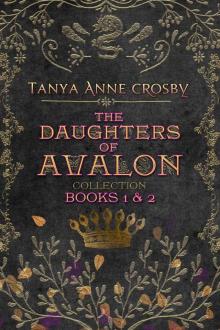 The Daughters of Avalon Collection: Books 1 & 2
The Daughters of Avalon Collection: Books 1 & 2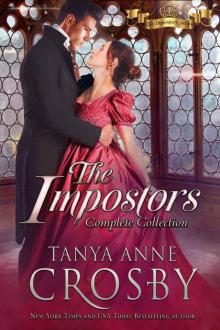 The Impostors: Complete Collection
The Impostors: Complete Collection The Holly & the Ivy (Daughters of Avalon Book 2)
The Holly & the Ivy (Daughters of Avalon Book 2)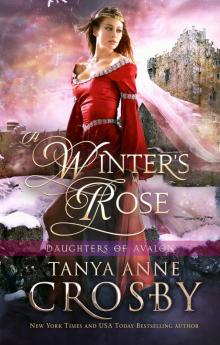 A Winter’s Rose
A Winter’s Rose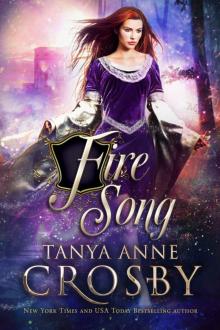 Fire Song (Daughters of Avalon Book 4)
Fire Song (Daughters of Avalon Book 4)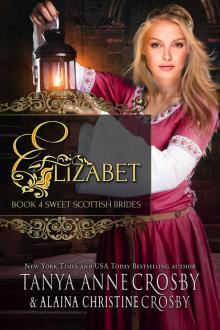 Elizabet
Elizabet Kissed; Christian
Kissed; Christian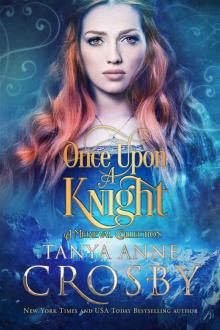 Once Upon a Knight
Once Upon a Knight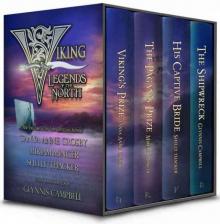 Viking: Legends of the North: A Limited Edition Boxed Set
Viking: Legends of the North: A Limited Edition Boxed Set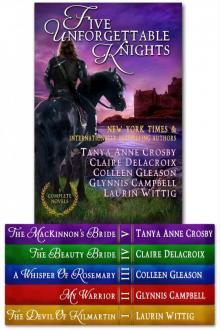 Five Unforgettable Knights (5 Medieval Romance Novels)
Five Unforgettable Knights (5 Medieval Romance Novels)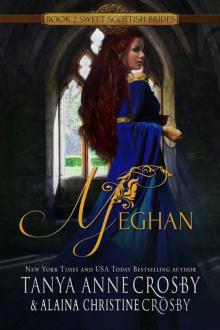 Meghan: A Sweet Scottish Medieval Romance
Meghan: A Sweet Scottish Medieval Romance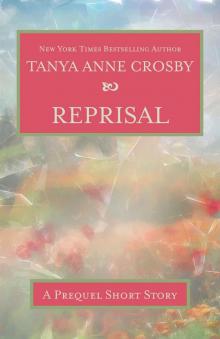 Reprisal: A Prequel Short Story to REDEMPTION SONG
Reprisal: A Prequel Short Story to REDEMPTION SONG Highland Song
Highland Song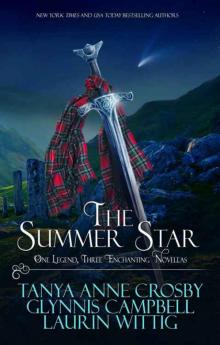 The Summer Star: One Legend, Three Enchanting Novellas (Legends of Scotland Book 2)
The Summer Star: One Legend, Three Enchanting Novellas (Legends of Scotland Book 2) Once Upon a Kiss
Once Upon a Kiss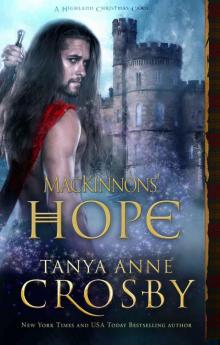 MacKinnons' Hope: A Highland Christmas Carol
MacKinnons' Hope: A Highland Christmas Carol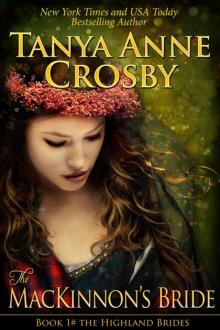 The MacKinnon's Bride
The MacKinnon's Bride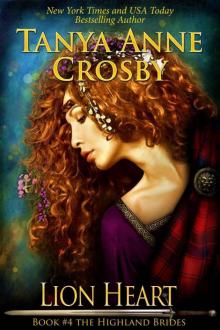 Highland Brides 04 - Lion Heart
Highland Brides 04 - Lion Heart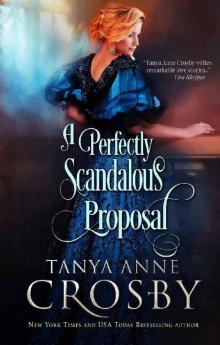 A Perfectly Scandalous Proposal (Redeemable Rogues Book 6)
A Perfectly Scandalous Proposal (Redeemable Rogues Book 6) Reprisal
Reprisal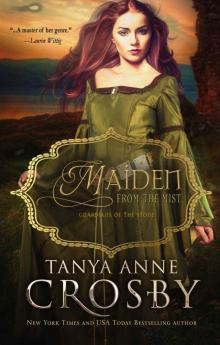 Maiden from the Mist (Guardians of the Stone Book 4)
Maiden from the Mist (Guardians of the Stone Book 4)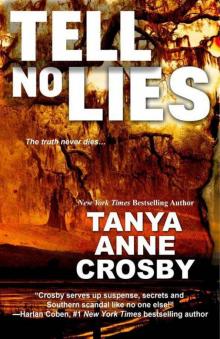 Tell No Lies
Tell No Lies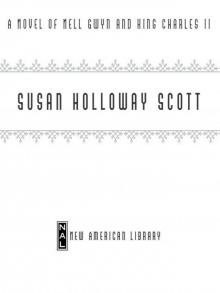 The King's Favorite
The King's Favorite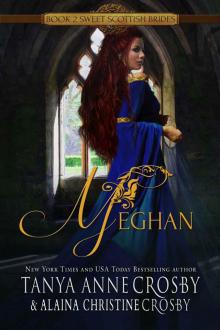 Meghan: A Sweet Scottish Medieval Romance (Sweet Scottish Brides Book 2)
Meghan: A Sweet Scottish Medieval Romance (Sweet Scottish Brides Book 2)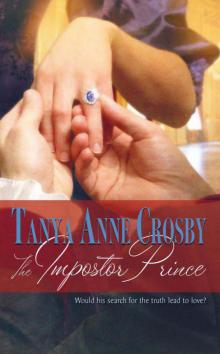 The Impostor Prince
The Impostor Prince Happily Ever After
Happily Ever After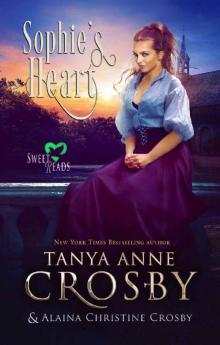 Sophie's Heart: Sweet Historical Romances
Sophie's Heart: Sweet Historical Romances Viking's Prize
Viking's Prize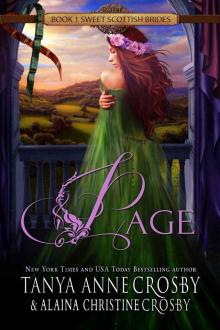 Page
Page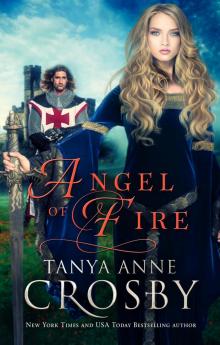 Angel of Fire
Angel of Fire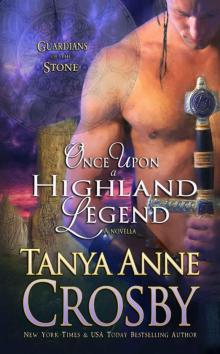 Once Upon A Highland Legend
Once Upon A Highland Legend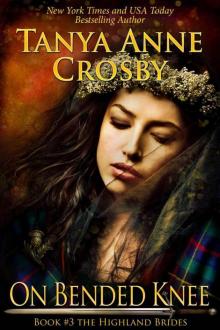 Highland Brides 03 - On Bended Knee
Highland Brides 03 - On Bended Knee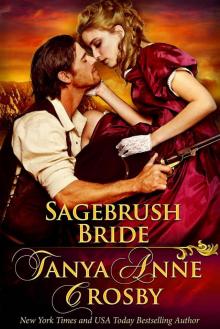 Sagebrush Bride
Sagebrush Bride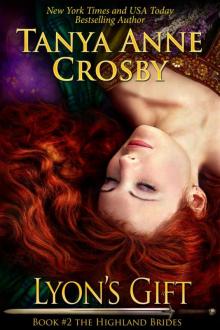 Lyon's Gift
Lyon's Gift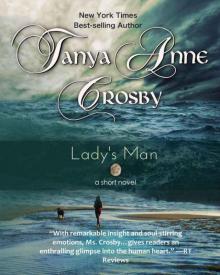 Lady's Man
Lady's Man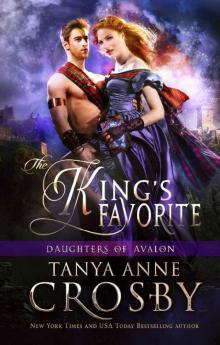 The King's Favorite (Daughters of Avalon Book 1)
The King's Favorite (Daughters of Avalon Book 1)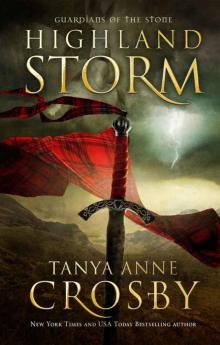 Highland Storm
Highland Storm Redemption Song
Redemption Song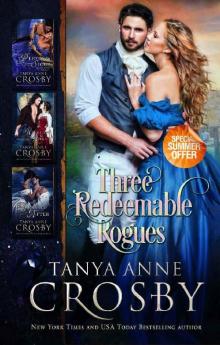 Three Redeemable Rogues
Three Redeemable Rogues